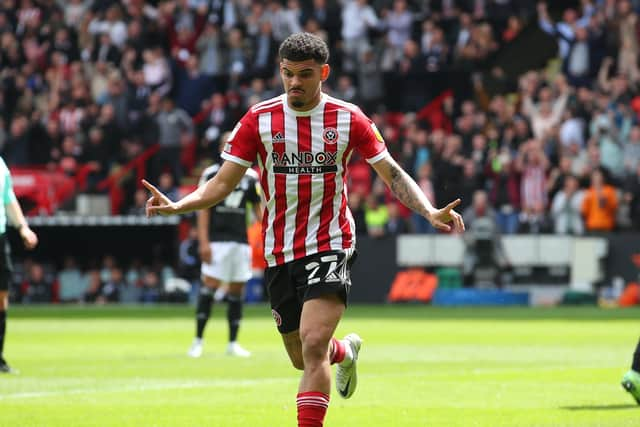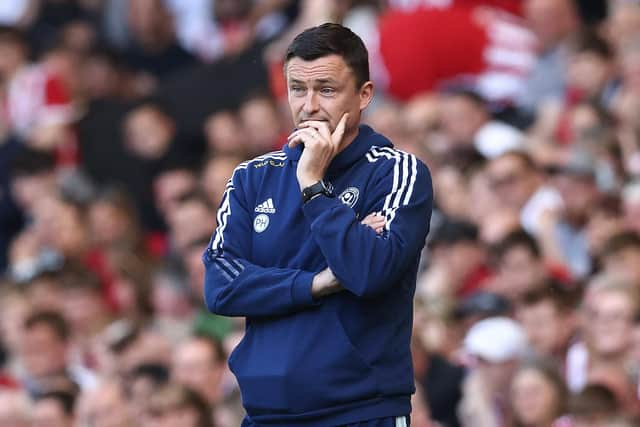Sheffield United plan to head back to Premier League loan market in summer transfer window
Hoarding has become a real problem in football.
As it increasingly becomes a squad game and benches expand – an extra two substitutes in next season’s Premier League – talent is concentrated into fewer clubs. Look at the Premier League table.
What used to be top-end Championship players are now Premier League bench-warmers, academies are huge and until Fifa clamps down in 2024, clubs like Chelsea will use the loan market as a business sideline. A massive squad is not just a safety blanket, it stops rivals improving and gives you greater power.


Those with smaller squads, like Leeds United, can suffer.
Advertisement
Hide AdAdvertisement
Hide AdIt goes even beyond players. Now Championship-standard referees are fourth officials, video assistant referees or even assistant VARs on a weekend.
So although Sheffield United’s Paul Heckingbottom is no big fan of loaning in players, the Blades will be going around the top clubs in August cap in hand.
“We can sign a player on £70,000 a week from a Premier League club, so we feel we can get a couple of really decent players,” argues chief executive, Stephen Bettis. “It’s probably the top half of the table we’d generally go to at the start because they’ve got such big squads and such quality in their first 50 (players).”


Morgan Gibbs-White showed the positives and negatives.
Gibbs-White is far better than Championship level, and showed as much as the Blades’ player of last season. Wolverhampton Wanderers’ squad size limited his opportunities but the Blades could never stretch to his transfer fee.
Advertisement
Hide AdAdvertisement
Hide Ad“I think Morgan’s a problem if he doesn’t play,” argues Bettis, “and I quite like that.”
But loan players seldom become available until clubs have looked at them in pre-season, and worked out who will be bought and sold. The Blades had been chasing for over a year, but only got him on August deadline day, seven matches into the season. In January, Wolves considered recalling him.
Throughout the season Heckingbottom was constantly asked if Gibbs-White would be back and he could only reply, “It’s out of our hands.”
Sheffield United are not poor.
“We’ve got the highest attendance, most season ticket holders, our sponsorship deals are outperforming most in the league and we’ve leveraged off our time in the Premier League,” says Bettis.
Advertisement
Hide AdAdvertisement
Hide AdOn top of Gibbs-White, the Blades borrowed Ben Davies, Filip Uremovic, who yesterday joined Hertha Berlin, Charlie Goode and (until January) Robin Olsen. Their youngsters were then loaned out too.
Two of Barnsley’s best post-January players were Fulham’s Domingos Quina and Metz’s Amine Bassi. Middlesbrough and Rotherham United signed Arsenal youngsters Folarin Balogun and Jordi Osei-Tutu, and Sheffield Wednesday manager Darren Moore has always been partial to a loan.
One of Huddersfield Town’s best players this season was teenage Chelsea centre-back Levi Colwill. The cross he put through his own net for the only goal in Sunday’s Championship play-off final against Nottingham Forest was delivered by Manchester United’s James Garner. Philip Zineckernagel, Max Lowe, Djed Spence and Keinan Davis were also on loan at Forest.
Huddersfield’s relationship with Chelsea also saw Tino Anjorin loaned in January and may have alerted them to Jon Russell, released by the Blues 12 months ago.
Advertisement
Hide AdAdvertisement
Hide AdThey should be pointing to how much Colwill has improved under Carlos Corberan’s coaching and arguing he should either return next season or someone else come from Cobham in his place.
Like it or not, as Sheffield United, Huddersfield, Forest and others showed, Football League success has a lot to do with how well you play the loan market.
Comment Guidelines
National World encourages reader discussion on our stories. User feedback, insights and back-and-forth exchanges add a rich layer of context to reporting. Please review our Community Guidelines before commenting.